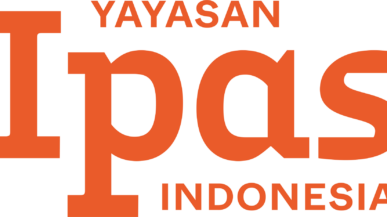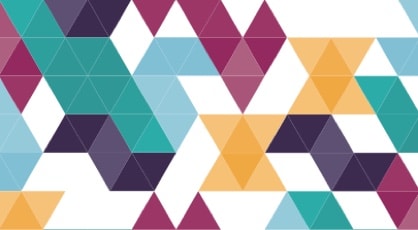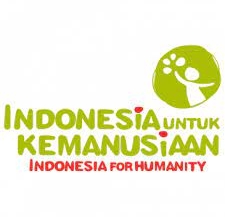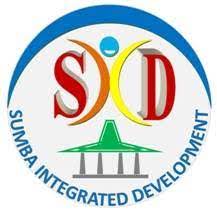Call for proposal
Reclaiming our Civic Space!
Indonesia Influencing Grant V-20155-ID-IF
-
Grant amount
Maximum €200,000Project Duration
18 - 30 MonthsClosing date
28 Feb 2021 -
-
-
Grants
Voice believes in periodically reviewing on matters that touch the five rightsholder groups around the three thematic areas. This year we embarked on an exciting journey of giving a closer look at Indonesia. After an intense and enlightening process, we finalised on the Indonesia context analysis that inspired this Call for Proposals and others in the pipeline. Go ahead and read it carefully before you look at this Call.
Reclaiming our Civic Space!
Influencing Grants Indonesia
In the past of five years, civic space has been shrinking drastically with threats to the freedom of opinion and expression, and acts of persecution. Criminalisation haunts Human Rights Defender’s activities, including accusations and stigma. Recently, protests are on the rise driven by local to national concerns, causing people to speak up on the socio-economic inequality, environmental concerns, and demands for transparent, and democratic governance. There is a need to expand safe spaces for freedom of expression. The work will still be difficult in the next one or two years, but the fight against efforts to limit that freedom will need to continue.
On a positive note, rightsholders’ situations have improved influenced by increased access to education and technology, and improved capacities to support campaigns and advocacies with other civil society organisations. There is also increased recognition of rightsholder groups from other stakeholders such as select government and private institutions.
In response to these challenges, and continuing to foster inter-movement solidarity and collaboration among rightsholder movement, Voice Indonesia is opening this Call for Proposals focused on responding to discriminatory laws and policies that affect rightsholder groups and threaten civic space. We invite civil society organisations to help shape local to national discussions on strengthening rightsholder groups to pursue an inclusive society.
What are we looking for?
Voice is looking for projects and ideas to expand safe spaces for freedom of expression and freedom from violence to push for the inclusion of rightsholder groups in relation to the following thematic impact areas:
- Improved access to (productive) resources (e.g. finance, land, and water) and employment;
- Improved access to social services, in particular, healthcare and education; and
- Space for political participation
Applications are open to locally registered organisations, consortiums, networks, or coalitions either led by or who work with the following rightsholders groups:
- Vulnerable youth and the elderly
- Indigenous groups and ethnic minorities
- Persons with disabilities
- Women facing exploitation, abuse, and/or violence
From the most recent Voice Indonesia Context Analysis, rightsholders have highlighted the following issues and opportunities to focus on:
- Increase political participation of women, PWDs, the elderly, the youth, and indigenous communities in inclusive policy-making at the village level and advocating village budgeting that mainstreams rightsholders’ interests and needs;
- Protection of Human Right Defenders from persecution, criminalisation, and risks of diseases, mental health, and death due to their activism;
- Strengthening the network between the disability movement, women’s movement, and victim service providers to advocate for cases of violence against women with disability and to provide victims with inclusive and accessible services in accompaniment, recovery, and judicial processes;
- Advocate for increasing job opportunities for Persons with disabilities through inter-stakeholder collaborations, supported by disability-friendly public and office facilities;
- Strengthen participation of geographically excluded indigenous communities (in areas that are difficult to reach), in the most disadvantaged, frontier, and outermost areas, and those who experience language constraints in public policy, advocacy, and citizenship education.
- Promote local policies and budget advocacy for increased access to social welfare coverage, health and livelihoods for poor elderly, solitary elderly, elderly with disability, and elderly women.
For more ideas on what issues Voice prioritises, take a look at the Voice Indonesia Context Analysis
Proposals need to be at least 18 – 30 months (start latest in June 2021 and end 31st December 2023) with a budget of up to €200,000 (approx. Rp 3.200.000.000). Voice recognises the importance of initiatives that respond to groups facing multiple layers of exclusion that cut across more than one rightsholders group. We have a strong preference for selecting projects that intend to work with more than one of the Voice rightsholder groups to address overlapping or cross-cutting challenges and promote inter-and/or intra-group solidarity. For Indonesia, intersectionality will be the prime criterion in reviewing, shortlisting, and accepting proposals
We will prioritise proposals coming from a strong alliance or coalition at the local or national level.
What do we mean by Influencing?
Based on the Voice Theory of Change, Influencing is the process where rightsholders and their representatives will use a range of lobby and advocacy tools to influence individuals, families, communities, private business, religious leaders, (social) media, and other decision-makers’ policies, practices, and behaviours. Ultimately, the combined interventions will lead to rightsholders:
- claiming their rights as equal citizens;
- having a meaningful participation in political, economic, and social spheres, and;
- accessing services and resources.
Influencing should happen and move across multiple levels from individuals to communities to local to national. Actions at the individual level can reinforce actions at other levels.
As observed from previous and current grantee projects, advocacies at the local level are seen to have more impact, especially in the current context. Local-level advocacies responding to national issues may be more strategic.
Who can apply?
Influencing Grants are open to:
- Locally registered non-profit Indonesian organisations;
- Networks, consortium, alliances and coalitions with a locally registered non–profit Indonesia organisation as the lead applicant
- Locally registered Indonesia social enterprises
All applicants must be rightsholder-led. An organisation (formal/informal) is rightsholder-led when it is governed and managed by members of the rightsholder-group(s). The principle of “Nothing About Us Without Us” guides their work. If the rightsholders do not play roles in the governance and management of the organisation, the proposal needs to describe how the rightsholder groups are fully involved in the conceptualisation, implementation, monitoring, and evaluation of the project.
International organisations and government organisations cannot be a lead applicant but can team up as a co-applicant in the case of consortium applications.
What we won’t fund
- Organisations with an annual turnover of over €2 million.
- An application where the grant awarded from Voice is more than 50% of the total annual income of the applicant organisation.
- The way to calculate this is to divide the requested amount by the number of years the project will be implemented. The result will then be divided by the annual income.
- If the result of this calculation is over 50% you can either reduce the requested amount or team up as part of a consortium where you can add up the annual incomes.
- Funding for commercial services, investment or other commercial activities.
- Projects led by current strategic partners of the Netherlands Ministry of Foreign Trade and Development Cooperation are not eligible for this call. In particular, those organisations funded under the “Dialogue and Dissent 2016-2020” and/or “Power of Voices 2021-2024” Policy Frameworks.
Practicing the Values of Voice
Voice believes in the principle of Nothing About Us Without Us. In practice, this means Voice rightsholder groups need to be at the centre of any effort. They must be involved in the conceptualisation, planning, and implementation of any grant. They are equal partners in any consortium, network, or coalition, playing key governance and leadership roles.
Linking and Learning
Linking and Learning is at the heart and soul of Voice. All grantees are expected to participate in facilitated meetings and gatherings enabling the exchange of ideas and learnings from eothers experiences. Applicants must demonstrate in their proposals how they will identify, document, and share their learnings as they implement their project. These may come in many forms such as blog posts, videos, photo essay or audio recordings.
Voice values diversity and inclusion. All grantees are expected to be able to interact with and learn from a diverse group of people coming from different backgrounds, orientations, and experiences. Interested applicants must be willing to work in a diverse community, which includes representatives from all of the Voice rightsholder groups.
From the numerous applications received the following grantees have been successful as part of this Call for Proposals. If you like to join Voice please see the current list of open Calls for Proposals Indonesia
Indonesia![Pasoedan – ANDIL SAHATE]()
Pasoedan – ANDIL SAHATE
Centre for Women's Resources Development Pasoendan (PPSW Pasoendan)-
About
Voice believes in periodically reviewing on matters that touch the five rightsholder groups around the three thematic areas. This year we embarked on an exciting journey of giving a closer look at Indonesia. After an intense and enlightening process, we finalised on the Indonesia context analysis that inspired this Call for Proposals and others in the pipeline. Go ahead and read it carefully before you look at this Call.
Reclaiming our Civic Space!
Influencing Grants Indonesia
In the past of five years, civic space has been shrinking drastically with threats to the freedom of opinion and expression, and acts of persecution. Criminalisation haunts Human Rights Defender’s activities, including accusations and stigma. Recently, protests are on the rise driven by local to national concerns, causing people to speak up on the socio-economic inequality, environmental concerns, and demands for transparent, and democratic governance. There is a need to expand safe spaces for freedom of expression. The work will still be difficult in the next one or two years, but the fight against efforts to limit that freedom will need to continue.
On a positive note, rightsholders’ situations have improved influenced by increased access to education and technology, and improved capacities to support campaigns and advocacies with other civil society organisations. There is also increased recognition of rightsholder groups from other stakeholders such as select government and private institutions.
In response to these challenges, and continuing to foster inter-movement solidarity and collaboration among rightsholder movement, Voice Indonesia is opening this Call for Proposals focused on responding to discriminatory laws and policies that affect rightsholder groups and threaten civic space. We invite civil society organisations to help shape local to national discussions on strengthening rightsholder groups to pursue an inclusive society.
What are we looking for?
Voice is looking for projects and ideas to expand safe spaces for freedom of expression and freedom from violence to push for the inclusion of rightsholder groups in relation to the following thematic impact areas:
- Improved access to (productive) resources (e.g. finance, land, and water) and employment;
- Improved access to social services, in particular, healthcare and education; and
- Space for political participation
Applications are open to locally registered organisations, consortiums, networks, or coalitions either led by or who work with the following rightsholders groups:
- Vulnerable youth and the elderly
- Indigenous groups and ethnic minorities
- Persons with disabilities
- Women facing exploitation, abuse, and/or violence
From the most recent Voice Indonesia Context Analysis, rightsholders have highlighted the following issues and opportunities to focus on:
- Increase political participation of women, PWDs, the elderly, the youth, and indigenous communities in inclusive policy-making at the village level and advocating village budgeting that mainstreams rightsholders’ interests and needs;
- Protection of Human Right Defenders from persecution, criminalisation, and risks of diseases, mental health, and death due to their activism;
- Strengthening the network between the disability movement, women’s movement, and victim service providers to advocate for cases of violence against women with disability and to provide victims with inclusive and accessible services in accompaniment, recovery, and judicial processes;
- Advocate for increasing job opportunities for Persons with disabilities through inter-stakeholder collaborations, supported by disability-friendly public and office facilities;
- Strengthen participation of geographically excluded indigenous communities (in areas that are difficult to reach), in the most disadvantaged, frontier, and outermost areas, and those who experience language constraints in public policy, advocacy, and citizenship education.
- Promote local policies and budget advocacy for increased access to social welfare coverage, health and livelihoods for poor elderly, solitary elderly, elderly with disability, and elderly women.
For more ideas on what issues Voice prioritises, take a look at the Voice Indonesia Context Analysis
Proposals need to be at least 18 – 30 months (start latest in June 2021 and end 31st December 2023) with a budget of up to €200,000 (approx. Rp 3.200.000.000). Voice recognises the importance of initiatives that respond to groups facing multiple layers of exclusion that cut across more than one rightsholders group. We have a strong preference for selecting projects that intend to work with more than one of the Voice rightsholder groups to address overlapping or cross-cutting challenges and promote inter-and/or intra-group solidarity. For Indonesia, intersectionality will be the prime criterion in reviewing, shortlisting, and accepting proposals
We will prioritise proposals coming from a strong alliance or coalition at the local or national level.
What do we mean by Influencing?
Based on the Voice Theory of Change, Influencing is the process where rightsholders and their representatives will use a range of lobby and advocacy tools to influence individuals, families, communities, private business, religious leaders, (social) media, and other decision-makers’ policies, practices, and behaviours. Ultimately, the combined interventions will lead to rightsholders:
- claiming their rights as equal citizens;
- having a meaningful participation in political, economic, and social spheres, and;
- accessing services and resources.
Influencing should happen and move across multiple levels from individuals to communities to local to national. Actions at the individual level can reinforce actions at other levels.
As observed from previous and current grantee projects, advocacies at the local level are seen to have more impact, especially in the current context. Local-level advocacies responding to national issues may be more strategic.
Who can apply?
Influencing Grants are open to:
- Locally registered non-profit Indonesian organisations;
- Networks, consortium, alliances and coalitions with a locally registered non–profit Indonesia organisation as the lead applicant
- Locally registered Indonesia social enterprises
All applicants must be rightsholder-led. An organisation (formal/informal) is rightsholder-led when it is governed and managed by members of the rightsholder-group(s). The principle of “Nothing About Us Without Us” guides their work. If the rightsholders do not play roles in the governance and management of the organisation, the proposal needs to describe how the rightsholder groups are fully involved in the conceptualisation, implementation, monitoring, and evaluation of the project.
International organisations and government organisations cannot be a lead applicant but can team up as a co-applicant in the case of consortium applications.
What we won’t fund
- Organisations with an annual turnover of over €2 million.
- An application where the grant awarded from Voice is more than 50% of the total annual income of the applicant organisation.
- The way to calculate this is to divide the requested amount by the number of years the project will be implemented. The result will then be divided by the annual income.
- If the result of this calculation is over 50% you can either reduce the requested amount or team up as part of a consortium where you can add up the annual incomes.
- Funding for commercial services, investment or other commercial activities.
- Projects led by current strategic partners of the Netherlands Ministry of Foreign Trade and Development Cooperation are not eligible for this call. In particular, those organisations funded under the “Dialogue and Dissent 2016-2020” and/or “Power of Voices 2021-2024” Policy Frameworks.
Practicing the Values of Voice
Voice believes in the principle of Nothing About Us Without Us. In practice, this means Voice rightsholder groups need to be at the centre of any effort. They must be involved in the conceptualisation, planning, and implementation of any grant. They are equal partners in any consortium, network, or coalition, playing key governance and leadership roles.
Linking and Learning
Linking and Learning is at the heart and soul of Voice. All grantees are expected to participate in facilitated meetings and gatherings enabling the exchange of ideas and learnings from eothers experiences. Applicants must demonstrate in their proposals how they will identify, document, and share their learnings as they implement their project. These may come in many forms such as blog posts, videos, photo essay or audio recordings.
Voice values diversity and inclusion. All grantees are expected to be able to interact with and learn from a diverse group of people coming from different backgrounds, orientations, and experiences. Interested applicants must be willing to work in a diverse community, which includes representatives from all of the Voice rightsholder groups.
-
How to apply?
This Call for Proposals is closed and no longer accepting applications. Come back here at a later stage to learn about the grantees that have been selected in this Call for Proposals.
The current open Calls for Proposals can be found here.
-
This Call for Proposals is closed and no longer accepting applications. Come back here at a later stage to learn about the grantees that have been selected in this Call for Proposals.
The current open Calls for Proposals can be found here.
-
From the numerous applications received the following grantees have been successful as part of this Call for Proposals. If you like to join Voice please see the current list of open Calls for Proposals

-
Indonesia
![Pasoedan – ANDIL SAHATE]()
Pasoedan – ANDIL SAHATE
Centre for Women's Resources Development Pasoendan (PPSW Pasoendan)







